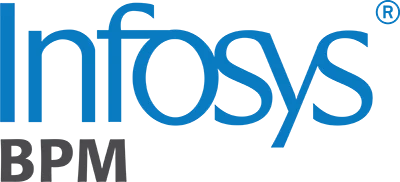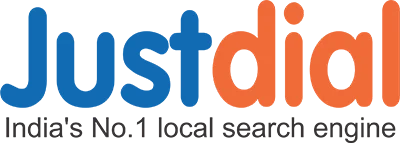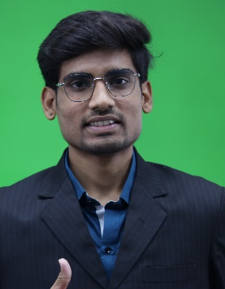B. Tech CSE in
(Computer Science & Engineering Core)
Other Specialization:
Overview
The Department of Computer Science and Engineering, established in 2012, has earned a reputation for attracting top engineering talent nationwide. Our mission is to cultivate skilled Computer Engineers and professionals equipped to meet the needs of both industry and society.
With state-of-the-art infrastructure, we support a dynamic academic environment conducive to research and extracurricular activities. Our faculty members, possessing extensive qualifications and experience, are dedicated to fostering the holistic development of our students.
We prioritize practical learning and offer a range of workshops, invited talks, and seminars to enhance both technical and soft skills. Throughout the semester, students receive specialized assistance in Technical Training, Soft Skills, and Aptitude.
Specialization:
Salient Features
- Industry-relevant credit based curriculum designed by experts
- Project based experiential learning
- Technical workshops & master classes by industry experts
- Hybrid leaming in association with world’s leading universities & corporate leading to global certifications
- Global Immersion Program
- Credit transfer facility to complete degree in international universities
- Soft skill development for modern workplace
- Dedicated Training & Placement Cell
- Vibrant Campus Life
Scope of B.Tech in CSE
-
CSE offers some of the highest paying jobs not only in India but also outside.
-
The global artificial intelligence market is expected to grow at a compound annual growth rate of 37.3% from 2023 to 2030 to reach USD 1,811.8 billion by 2030.
-
The global edge computing market size is expected to reach USE 157.91 billion by 2030.
B.Tech (CS) at CPU is powered by
Pathway to top tech firms like




Skill Xcelerator Program, designed to prepare students for top tech careers by bridging classroom learning with industry demands.
Skill Xcelerator Highlights:
- Training in AI/ML, Full Stack Development, Software Engineering
- Led by experts from IBM, Microsoft, Infosys, and top startups
- Hands-on projects, case studies & interview prep
- Focused on aptitude, soft skills, and placement readiness
- For pre-final & final year students aiming for companies like Google, Meta, Amazon, and more

Admission open for B.Tech courses for Session 2026-27
Course Structure B.Tech CSE
The B.Tech in Computer Science and Engineering (CSE) is a four-year undergraduate program designed to provide students with a strong foundation in computer science principles, programming, and software development. The course structure typically spans eight semesters and includes a balanced mix of theoretical knowledge and practical skills. In the initial semesters, students are introduced to core subjects like mathematics, physics, programming languages (such as C, C++, and Python), and data structures. As the program progresses, advanced topics such as algorithms, computer networks, operating systems, database management systems, artificial intelligence, machine learning, cloud computing, and cybersecurity are covered.
The curriculum often includes laboratory work, mini-projects, and internships to enhance hands-on experience. In the final year, students usually undertake a major project that integrates the skills and knowledge acquired throughout the course.
| Category | Short Name | Description | Credits |
|---|---|---|---|
| Departmental Core | DC | Discipline Specific Core Courses (DSC) | 59 |
| Departmental Core | DC | Project / Dissertation / Field Study / Survey | 13 |
| Departmental Core | DC | Seminar | 3 |
| Departmental Core | DC | Internship / on Job Experience | 0 |
| Departmental Core | DC | Research Credit Course | 0 |
| Departmental Elective | DE | Discipline Specific Elective Courses(DSE) | 31 |
| Program Linked Core | PLC | Interdeciplinary | 29 |
| Generic Elective | GE | Open courses/Generic Elective (GE) | 18 |
| University Core | UC | Ability Enhancement Courses (AEC) | 4 |
| University Core | UC | Skill Enhancement Courses (SEC) | 8 |
| Value Added Courses common for all UG (VAC) – Non Graded | |||
| University Core | UC | NSS/NCC | 2 |
| University Core | UC | Envionmental Science | 2 |
| University Core | UC | Human Values and Professional Ethics | 2 |
Electives and open-ended courses also allow students to specialize in emerging areas of computer science. Overall, the program aims to equip students with the technical expertise and problem-solving skills needed to excel in the ever-evolving tech industry.
| S.No. | Course Code | Course | L | T | P | Total Credit | Category |
|---|---|---|---|---|---|---|---|
| 1 | MAL510 | Mathematics-1 | 3 | 1 | 0 | 4 | PLC |
| 2 | CSL521 | Introduction to Artificial Intelligence and Data Science | 3 | 0 | 2 | 4 | DC |
| 3 | CSL502 | Internet technology | 3 | 0 | 2 | 4 | DC |
| 4 | PHL507 | Field & Waves | 3 | 0 | 2 | 4 | PLC |
| 5 | CSL501 | Introduction to C programming | 3 | 0 | 2 | 4 | DC |
| 6 | AML501 | Engineering Mechanics | 3 | 1 | 0 | 4 | PLC |
| 7 | University Core-1 | 2 | 0 | 2 | 3 | UC |
| S.No. | Course Code | Course | L | T | P | Total Credit | Category |
|---|---|---|---|---|---|---|---|
| 1 | CSL605 | Introduction to Python | 3 | 0 | 2 | 4 | DC |
| 2 | EEL501 | Fundamental of Electrical Engineering | 3 | 0 | 2 | 4 | PLC |
| 3 | MAL520 | Mathematics-II | 3 | 1 | 0 | 4 | PLC |
| 4 | CSL503 | Web development | 3 | 0 | 2 | 4 | DC |
| 5 | MEL501 | Manufacturing Practice | 3 | 0 | 2 | 4 | PLC |
| 6 | MEL502 | Graphics Science | 0 | 0 | 2 | 1 | PLC |
| 7 | University Core-2 | 2 | 0 | 2 | 3 | UC |
| S.No. | Course Code | Course | L | T | P | Total Credit | Category |
|---|---|---|---|---|---|---|---|
| 1 | CSL602 | Data Structures | 3 | 0 | 2 | 4 | DC |
| 2 | Departmental Elective-1 | 2 | 0 | 2 | 3 | DE | |
| 3 | CSL604 | Discrete Mathematical Structure | 3 | 1 | 0 | 4 | PLC |
| 4 | CSL605 | Programming in C++ | 3 | 0 | 2 | 4 | DC |
| 5 | University Core-3 | 2 | 0 | 2 | 3 | UC |
| S.No. | Course Code | Course | L | T | P | Total Credit | Category |
|---|---|---|---|---|---|---|---|
| 1 | CSL 621 | Introduction to Database Systems | 3 | 0 | 2 | 4 | DC |
| 2 | CSL622 | Operating Systems | 3 | 0 | 2 | 4 | DC |
| 3 | CSL623 | Software Engineering | 3 | 1 | 0 | 4 | DC |
| 4 | Departmental Elective-2 | 3 | 0 | 2 | 4 | DE | |
| 5 | University Core-4 | 3 | 1 | 0 | 4 | UC | |
| 6 | Departmental Elective-3 | 3 | 0 | 2 | 4 | DE |
| S.No. | Course Code | Course | L | T | P | Total Credit | Category |
|---|---|---|---|---|---|---|---|
| 1 | CSL701 | Theory of Computation | 3 | 1 | 0 | 4 | DC |
| 2 | CSL702 | Analysis and Design of Algorithms | 3 | 0 | 2 | 4 | DC |
| 3 | CSL703 | Computer Architecture | 3 | 0 | 0 | 3 | DC |
| 4 | Departmental Elective-4 | 3 | 0 | 2 | 4 | DE | |
| 5 | Departmental Elective-5 | 3 | 0 | 2 | 4 | DE |
| S.No. | Course Code | Course | L | T | P | Total Credit | Category |
|---|---|---|---|---|---|---|---|
| 1 | CSL721 | Compiler Design | 3 | 1 | 0 | 4 | DC |
| 2 | CSL722 | Computer Networks | 3 | 0 | 2 | 4 | DC |
| 3 | Departmental Elective-6 | 3 | 0 | 0 | 3 | DE | |
| 4 | Departmental Elective-7 | 2 | 0 | 2 | 4 | DE |
| S.No. | Course Code | Course | L | T | P | Total Credit | Category | Semester |
|---|---|---|---|---|---|---|---|---|
| 1 | Departmental Elective-8 | 3 | 1 | 0 | 4 | DE | 7th Sem | |
| 2 | Departmental Elective-9 | 3 | 0 | 2 | 4 | DE | 7th Sem | |
| 3 | CSD812 | Major Project Part-1 (CS) | 0 | 0 | 10 | 5 | DC | 7th Sem |
| 4 | CST810 | Practical Training | 0 | 0 | 0 | 0 | DC | 7th Sem |
| 5 | CSC811 | Colloquium (CS) | 0 | 3 | 0 | 3 | DC | 7th Sem |
| S.No. | Course Code | Course | L | T | P | Total Credit | Category |
|---|---|---|---|---|---|---|---|
| 1 | CSD813 | Major Project Part-2 (CS) | 0 | 0 | 16 | 8 | DC |
| Course Code | Course | L | T | P | Credit |
|---|---|---|---|---|---|
| EGL505 | Communication Skill-1 | 2 | 0 | 2 | 3 |
| EGL555 | Communication Skill-2 | 2 | 0 | 2 | 3 |
| EGL— | University Core | 2 | 0 | 2 | 3 |
| EGL— | University Core | 3 | 1 | 0 | 4 |
| Course Code | Course | L | T | P | Credit |
|---|---|---|---|---|---|
| CSL603 | Internet of Things | 2 | 0 | 2 | 3 |
| CSL606 | Quantum Computing | 3 | 0 | 0 | 3 |
| CSL624 | Programming in Java | 3 | 0 | 2 | 4 |
| CSL626 | Robotics and Automation | 2 | 0 | 2 | 3 |
| CSL628 | Mobile Application Development | 3 | 0 | 2 | 4 |
| CSL629 | Advance Python | 3 | 0 | 2 | 4 |
| CSL704 | Fundamentals of PHP | 3 | 0 | 2 | 4 |
| CSL709 | Computer Graphics | 3 | 0 | 2 | 4 |
| CSL710 | Artificial Intelligence and Knowledge Representation | 3 | 1 | 0 | 4 |
| CSL711 | Introduction to Recommendation system | 3 | 0 | 2 | 4 |
| CSL724 | Introduction to cloud computing | 3 | 0 | 0 | 3 |
| CSL730 | Big Data Analysis | 3 | 0 | 2 | 4 |
| CSL733 | Distributed System | 3 | 0 | 0 | 3 |
| CSL734 | Virtual Reality (VR) and Augmented Reality (AR): | 3 | 0 | 0 | 3 |
| CSL838 | Data Mining & Warehousing | 3 | 1 | 0 | 4 |
| CSL835 | Introduction to Data Science | 3 | 0 | 2 | 4 |
| CSL836 | Cryptography and Network Security | 3 | 1 | 0 | 4 |
| CSL837 | Block Chain technology | 3 | 0 | 0 | 3 |
Department
at a Glance
- Reputation
- Experienced Faculty
- Cutting-Edge Curriculum
- State-of-the-Art Facilities
- Industry Partnerships
- Career Support
- Diverse Learning
- Student-Centric Approach
Exclusive
Labs
- Artificial Intelligence & Machine Language Lab
- Internet of Things lab
- Full Stack Development
- Cloud Computing Lab
- Android Development Lab
- Open Source Technologies Lab
Your Department in a Nutshell
- Achievements
- Patents
- Research
- Expert Sessions
- Activities
- Labs
Admission Criteria
- Through Eligibility & Scholarship Test (CPU-EST). For details, Click Here
- Rolling Admission: We follow rolling admission process. To apply Click Here
Fee Details
Course Fee | |
|---|---|
Admission Fee (one time) | 5000/- (at the time of admission) |
Tuition Fee | 69000/- Per Semester |
Examination Fee | 3000/- Per Semester |
Development Fee | 3000/- Per Semester |
Caution Money (one time) | 3000/- (Refundable) |
Scholarship Criteria
Scholarship For Session 2026-27
| Till 30th June | Till 15th July | Till 31st July | After 31st July | |
|---|---|---|---|---|
| Early Admission Benefit (One Time) [INR] | 5000 | 3000 | 2000 | No EAB |
Merit Scholarship
| % in 12th Board (PCM) | Scholarship on Tuition Fees | |||
|---|---|---|---|---|
| Till 30th June | Till 15th July | Till 31st July | After 31st July | |
| Above 95% | 50% | 45% | 40% | NA |
| 90% – 94.99% | 40% | 35% | 30% | NA |
| 85% – 89.99% | 30% | 25% | 20% | NA |
| 80% – 84.99% | 20% | 15% | 10% | NA |
| 70% – 79.99% | 15% | 10% | 5% | NA |
| 60% – 69.99% | 10% | 5% | NA | NA |
| %tile in JEE Main | Scholarship on Tuition Fees | |||
|---|---|---|---|---|
| Till 30th June | Till 15th July | Till 31st July | After 31st July | |
| Above 98.0 | 60% | 60% | 50% | 40% |
| 95.0 – 98.0 | 50% | 50% | 40% | 30% |
| 90 – 94.99 | 40% | 30% | 20% | 10% |
| 85 – 89.99 | 30% | 20% | 10% | NA |
| 80 – 84.99 | 20% | 10% | 5% | NA |
For CPU Students ( Graduation Year 2025 or 2026)
| Scholarship in Tuition Fee | ||||
|---|---|---|---|---|
| Till 31st July | After 31st July | |||
| CPU Student (Graduating in 2025 or 2026) | 1. Waiver in Admisoin Fee Rs 5000/- 2. Scholarship 10% in Tution fee OR merit scholarship as above whichiever is higher | NA | ||
Note:
- 1. Merit scholarship is linked with admission date (irrespective of date of result declaration of previous class)
- 2. Student can avail only one type of merit scholarship scholarship (whichever is higher).
- 3. Merit Schiolarship Continuation eligibility: Above merit scholarship is only for 1st Year. For continuation of the same in subsequent year, student has to maintain CGPA >= 6.5
- 4. EAB Scholarship is given in addion to the merit scholarship.
- 5. To avail scholarship, student must deposit applicable semester fee before the cut-off date for scholarship. If student fail to do so, his/her eligibiity for availing scholarship will be cancelled.
- 6. Also, to avail merit scholarship, student has to submit supporting documents in original along with 1 set of photocopies.
Why Join Computer Science & Engineering?
The scope of Computer Science and Engineering (CSE) is extensive and dynamic, offering diverse career opportunities in technology, entrepreneurship, research, and cross-disciplinary applications. With the increasing demand for digital solutions across industries, CSE professionals are well-positioned for success and innovation in the ever-evolving field of technology.
- Top-notch Education: We provide a premier Computer Science & Engineering program with experienced faculty and a commitment to excellence.
- Cutting-Edge Curriculum & Infrastructure: The curriculum aligns with industry trends, offering hands-on learning in state-of-the-art facilities.
- Industry Integration & Digital Focus: Strong industry ties provide exposure, internships, and projects, with a focus on Digital Transformation Technologies.
- Placement Support & Research Opportunities: The University assists in securing placements and encourages research initiatives for contributing to technological advancements.
- Flexibility & Holistic Development: Students enjoy elective choices for tailored learning, emphasizing critical skills and holistic personal development.
What makes Department
of Computer Science & Engineering unique?
A Computer Science and Engineering (CSE) department is unique due to its interdisciplinary nature, rapid evolution, diverse specializations, hands-on learning approach, collaborative environment, focus on problem-solving, attention to ethical and social implications, and global impact. These factors collectively distinguish CSE departments and contribute to their significance in academia and industry.
Placements






Recruiters Tie Up's









Our Students Speak

Package: 6 LPA

Package: 9 LPA
How to Apply
Steps to Follow
Frequently Asked Questions
B.Tech in Computer Science & Engineering at Career Point University
The B.Tech in Computer Science & Engineering program is a four-year undergraduate course at Career Point University.
The program stands out for its innovative curriculum, experienced faculty, focus on digital transformation technologies, industry integration, and a commitment to holistic student development.
To apply, visit the official website, create an account, fill in the application form, upload required documents, pay the application fee, and submit the application online. Ensure all details are accurate before submission.
Eligibility criteria typically include completing 10+2 with a minimum percentage in relevant subjects (such as Physics, Chemistry, and Mathematics). Specific criteria may vary, so check the university’s admission guidelines.
Career Point University may conduct an entrance exam. Prepare by reviewing relevant subjects from your 10+2 curriculum, practicing sample questions, and staying updated on general knowledge related to the field.
Graduates can pursue diverse careers, including software development, data analytics, network management, cybersecurity, and more. The program is designed to make students industry-ready for various roles in the technology sector.
Yes, the program encourages internships to provide practical exposure. Career Point University has strong industry connections, facilitating both internships and placement assistance for students.
While the program covers a broad range of subjects, there may be opportunities for specialization or elective choices within specific areas. Check the curriculum and consult with academic advisors for more details.
Career Point University provides state-of-the-art infrastructure, including modern laboratories, advanced computing facilities, and technology-equipped classrooms to support hands-on learning.
Yes, the program encourages research initiatives, and students have opportunities to engage in projects that contribute to the advancement of knowledge in the field of Computer Science & Engineering.
Yes, Career Point University has a supportive alumni network. Alumni can provide guidance, mentorship, and networking opportunities, enhancing the overall student experience.
Absolutely. Career Point University values holistic development, and students are encouraged to participate in various extracurricular activities, clubs, and events to enhance their overall skill set.







